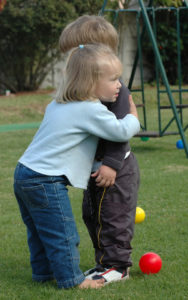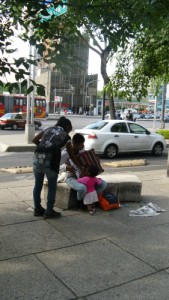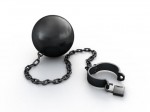 “Me Too” and the Greater Truth
“Me Too” and the Greater Truth
First, what happened:
The first time I was fourteen and working at a dry cleaning pick-up station inside a megastore. I noticed that the forty-some owner, who was the father of a classmate, seemed to hang a lot while I was working and then he asked me if I’d liked to see how dry cleaning operation worked. I’m saddled with a child-like curiosity for new experiences.
I showed up as the plant was closing as instructed. It never occurred to me to be afraid. I had a driver’s lesson and drove myself to work and hauled my horse to shows in nearby towns. I was not afraid. Once we were in the rear room of the plant, my boss pinned me up against the wall and shoved his hands up my skirt. He covered my mouth and made clear that if I did not stay still, I would lose my job. Jobs are not easy to get for a fourteen-year-old. When I got home I said I quit my job because my boss said my friends were hanging around the pick-up station too much.
The second time I was nineteen and again desperate for a job. I accepted a placement with the most exclusive custom drapery shop in Houston. I ignored the owner’s breath in my face during training on day one. The second day he took me out to an exclusive club lunch and insisted I should accompany him an up-coming trip to Italy to buy fabric. On return from lunch he sent the rest of the staff home while I was in the bathroom. When I stepped out he grabbed my wrists and backed me down onto a desk and laughed at my fight saying he wasn’t taking me to Italy for nothing. I ran.
Two days later I interviewed with a chiropractor who asked me if I understood what a chiropractor actually did. When I said I didn’t, he led me to a treatment room and stupidly (I thought then) allowed him to guide me onto the treatment table. He was more successful than the others as he kept saying what he was doing was how chiropractic helped people. He kept up a combination of telling me I’d be a natural for the job and a running commentary on what he was doing using medical terminology. I stayed too long and then I ran.
 The More Important Truth Number One: Our Relationships
The More Important Truth Number One: Our Relationships
The more important truth is that I never told anyone. Why? We could go off on a string of cultural indictments and they’re certainly there. But the more important truth is that ‘not telling’ has to do with the relationships we are in and our faith that we can be heard without judgment.
In the first situation, it was not easy for a fourteen-year-old girl to get a job. Most Americans think fourteen is quite immature, but I’d travelled, as my parents had, to other cultures where ten-year-olds ran stores and kids even younger kept herds, ran households, and did just fine. My first letter to the editor had been a complaint that only boys were hired for paper routes and bagging groceries. I knew I could do the simple job. I was afraid that if I told my parents, they’d let that one experience mean that I was too young for the challenge. Also I didn’t want my classmate, who was already close to being an outcast, to be humiliated by his father’s lack of character. I chose to stay silent and had a fast food job by the next week.
The other two molestations occurred in Houston while I was nineteen and in an unfortunate relationship that I had ‘run away from home’ to accomplish. The worst choice I could have made would have been to provide material for him to further undermine my confidence.
 The More Important Truth Two
The More Important Truth Two
The second important truth about my ‘Me Too’ is that my experiences are not even close to the humiliations and worse experienced by women in this country who have less power and no way equal to the horrors that are regular fare and even part of the laws in other countries where women are considered property from birth.
Humiliating a woman by ignoring her freedom to make choices about her body is about power. Taking away a woman’s right to make choices about her body and then to cackle about such abuse is a way to puff up oneself by ‘proving’ that the other person (or maybe all women) is not as powerful as he is. Of course, this is one more way to disguise his own insecurity and lack of self.
But my experiences didn’t affect me the way women who have no power—yes, poor women, women of color whose hopes for power are undermined in this racist culture, women who grew up with no father, unstable parents, and little education—are affected every moment. Am I disparaging the women speaking up who have experienced sexual abuse?
Am I saying one woman’s experience is not enough to deserve attention and repudiation? No, every experience is personal and painful. But—when these experiences happened to me, I knew there was a path for me to go beyond situations that left me vulnerable. I am white. I went to college and graduate school and even back then in Houston while I was playing like I would stay married, I knew I wouldn’t. My father’s analysis of my abilities had been different from those of my partner, thus I had a sense of self which enabled me to move on. I was lucky, lucky, lucky.
I knew I had a way out. The molestation experiences would not continue through my lifetime. I am the exception. Movie stars are the exception.
The truth is that when you really look at the ‘epidemics,’ I mean really study the facts, you’ll learn that the greatest determining factor in whether a woman will experience incest, will be addicted, will be beaten, will die of a drug overdose, will die of cancer because of late diagnosis—is poverty. Poverty is violent. Poverty leaves girls and women powerless.
But with the “Me Too” movement as with the ‘war on drugs’ movement, the stories of the powerless, the disenfranchised are not the lead stories. Movie star stories are entertaining. The truth of what’s happening with girls from the poor side of your town is not entertaining. The fact that most girls who are lured into prostitution are girls who won’t be missed—will not go viral the way “me too” about a teen rock star enduring a man sitting behind her on a plane rubbing his foot against her neck—will be “Breaking News!”
What can you do beyond following the stars? Watch the movie “Precious.” The story of a young obese African American girl whose two children resulted from rape by her mother’s boyfriend and her mother accepted the situation. Read “A Thousand Splendid Suns” (by the author of The Kite Runner) and take a peek at a society where a man ‘takes’ his first much younger wife and uses her for a couple of decades then buys another young girl relegating the first wife to housekeeper—a role she accepts or she’s turned out onto the street.
Every act of abuse deserves to be heard and the abuser brought to justice. Any abuse is deplorable and we need to address each event. All I’m asking is, can we expand the story to those women who do not tell and do not escape because there is nowhere to go? Women who won’t be asked to be on “Me Too” panels, women who will not be asked questions by celebrity news readers, women for whom the notion of having their ‘day in court’ is ridiculous.
 Can we ‘be there’ for them with our words and our actions? Can we at least respond to ‘shocking revelations’ by bringing powerless women into the conversation?
Can we ‘be there’ for them with our words and our actions? Can we at least respond to ‘shocking revelations’ by bringing powerless women into the conversation?





